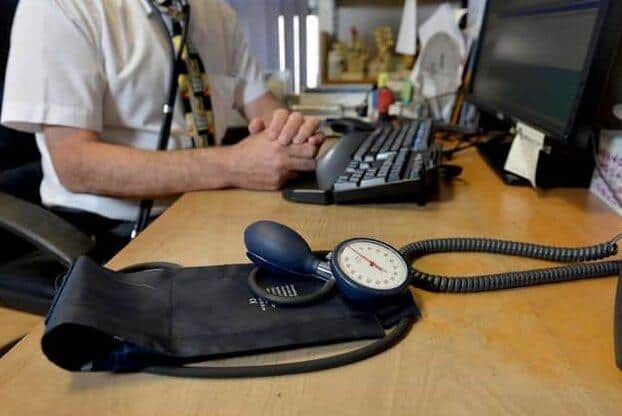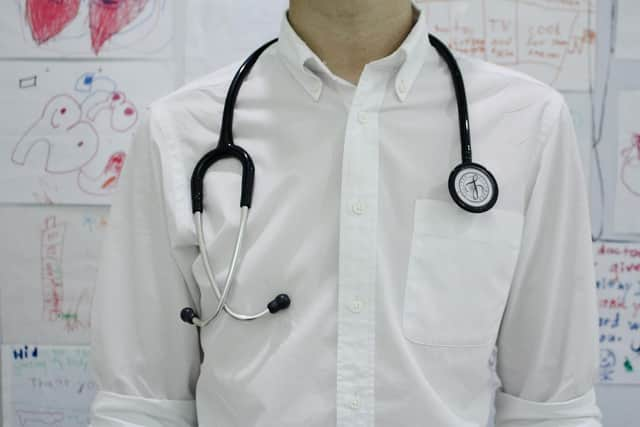Exclusive:Scotland's GP crisis: GPs warn public to "expect more practice closures" as burned out doctors take early retirement
Top GPs have warned they are “expecting to see more GP practice closures” in Scotland over the next year, as they described being “burned out and frazzled” by the immense workload.
In Scotland, GP practice numbers have dwindled, while the number of patients registered with GP practices has soared, leading to frustrated patients and overworked GPs looking to leave the profession.
Advertisement
Hide AdAdvertisement
Hide AdThe latest Public Health Scotland (PHS) figures show that the number of patients registered with GP practices has continued to rise year on year, and has increased by 7.1 per cent since 2013.


Meanwhile, the number of patients aged 65 and over, who are far more likely to need medical assistance than other age groups, has increased by 19.3 per cent since 2013.
In the same period, the number of practices in Scotland has decreased by 9.8 per cent, from 994 to 897 practices since 2013, reflecting a trend towards fewer practices overall and instead having larger practices.
Chair of the Royal College of General Practitioners (RCGP), Dr Chris Provan, told the Scotland on Sunday “we will continue to see closures because there continues to be pressure on workload”.
“We are seeing GPs retiring early due to being burned out and frazzled,” Dr Provan said.


“The job is so intense at the moment that you can’t really do it full time, although it takes full time hours due to the extra workload.”
Dr Provan, a GP in Aberdeen, also pointed to issues with recruitment.
“We have a leaky pipeline of trainees who can leave after the first two years,” he said, “some to other UK countries, within the Commonwealth and some leave to go back to their home countries.
Advertisement
Hide AdAdvertisement
Hide Ad“We lose a lot of people on the way to becoming GPs in Scotland.”
In November, the British Medical Association (BMA) published damning research showing the estimated number of Whole Time Equivalent (WTE) GPs in Scotland has decreased from 3,613 in 2019 to 3,494 in 2022.
As a consequence, there are now 1,687 patients for every full-time-equivalent GP.
The impact differs by region - in NHS Lanarkshire, the figure is 2,201 patients per GP, the highest in Scotland.
The BMA further warned that Scotland is currently around 1,000 GPs short.
“Put simply – this means there is less GPs capacity available to care for the people of Scotland than at any point since 2009, at the exact time we are seeing substantial increases in demand for care – driven by an increasing and ageing population and ever lengthening waiting lists,” said Dr Andrew Buist, the chair of BMA Scotland’s GP committee.
“[The survey] shows that the WTE number of GPs in Scotland has actually fallen by 3 per cent to the lowest level since this survey was first produced.”
A spokesperson for the Scottish Government said that Scotland has a higher number of GPs per head than the rest of the UK, “and a record 1,200 trainee GPs coming through the training system in Scotland”.
Advertisement
Hide AdAdvertisement
Hide Ad“We are fully committed to increasing the number of GPs in Scotland and have invested over £1.2 billion in General Medical Services in 2023-24 to ensure more people get the right care in the right place at the right time,” the spokesperson added.
The Scottish Government also offers a £20,000 bursary incentive to GPs to increase rural and other hard to fill vacancies.
Dr Provan said the RCGP believes “we need more people into medical school places because we need more doctors overall” due to Scotland’s ageing population.
There are more people in the older age groups than ever recorded in Scotland's Census in 2022.
There are now over one million people aged 65 and over (1,091,000). This is over a quarter of a million higher than the number of people under 15 years old (832,300).
An increase in Scotland’s older population is leading to an increase in the pressure on NHS Scotland due to the more acute nature of older peoples’ medical problems and the lack of resources able to meet the increased demand.
“All of the trainee placements were filled, which is great, but we need to keep the doctors we train,” Dr Provan said.
“We also need more trainers, or at least sustain the ones we have.”
Advertisement
Hide AdAdvertisement
Hide AdThe Scottish Government committed in 2017 to increase the number of GPs in Scotland by 800 over ten years, but a recent Audit Scotland report found the government was “not on track”.
“GPs are doing their absolute best, and working 12 hour days, to try and give the service they are wanting to give,” said Dr Provan.
“There’s lots of talks and good meetings about this but we actually need action now.
“Ultimately it’s about funding, having enough percentage of the resources going into GP practice primary care to sustain us and make us able to do our job and make us feel valued.
“Also, help us cope with our workload which is the bottom line.
“The multi disciplinary teams haven’t got to the stage where they are taking enough of the workload off GPs as we would like.”
Comments
Want to join the conversation? Please or to comment on this article.